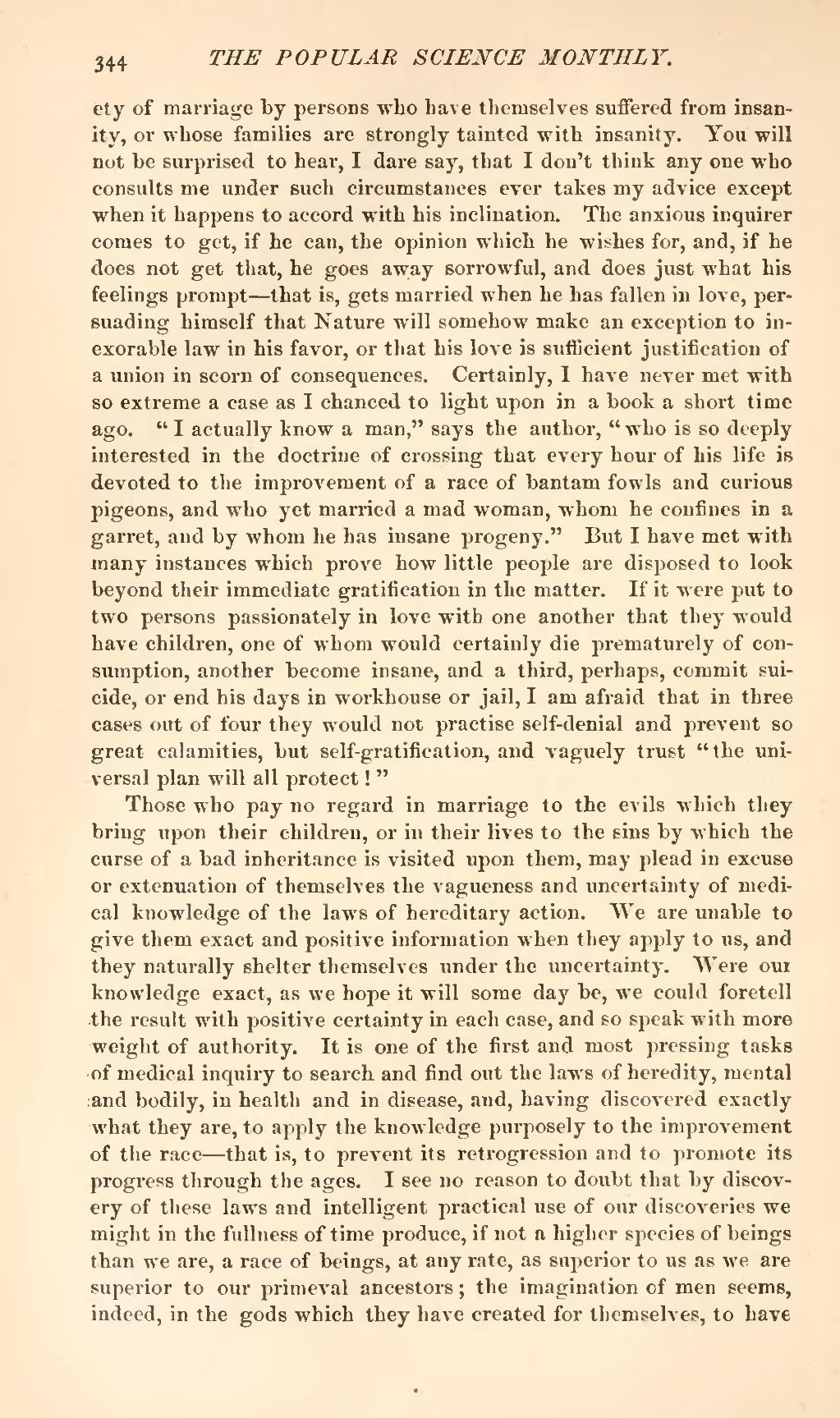ety of marriage by persons who have themselves suffered from insanity, or whose families are strongly tainted with insanity. You will not be surprised to hear, I dare say, that I don't think any one who consults me under such circumstances ever takes my advice except when it happens to accord with his inclination. The anxious inquirer comes to get, if he can, the opinion which he wishes for, and, if he does not get that, he goes away sorrowful, and does just what his feelings prompt—that is, gets married when he has fallen in love, persuading himself that Nature will somehow make an exception to inexorable law in his favor, or that his love is sufficient justification of a union in scorn of consequences. Certainly, I have never met with so extreme a case as I chanced to light upon in a book a short time ago. "I actually know a man," says the author, "who is so deeply interested in the doctrine of crossing that every hour of his life is devoted to the improvement of a race of bantam fowls and curious pigeons, and who yet married a mad woman, whom he confines in a garret, and by whom he has insane progeny." But I have met with many instances which prove how little people are disposed to look beyond their immediate gratification in the matter. If it were put to two persons passionately in love with one another that they would have children, one of whom would certainly die prematurely of consumption, another become insane, and a third, perhaps, commit suicide, or end his days in workhouse or jail, I am afraid that in three cases out of four they would not practise self-denial and prevent so great calamities, but self-gratification, and vaguely trust "the universal plan will all protect!"
Those who pay no regard in marriage to the evils which they bring upon their children, or in their lives to the sins by which the curse of a bad inheritance is visited upon them, may plead in excuse or extenuation of themselves the vagueness and uncertainty of medical knowledge of the laws of hereditary action. We are unable to give them exact and positive information when they apply to us, and they naturally shelter themselves under the uncertainty. Were our knowledge exact, as we hope it will some day be, we could foretell the result with positive certainty in each case, and so speak with more weight of authority. It is one of the first and most pressing tasks of medical inquiry to search and find out the laws of heredity, mental and bodily, in health and in disease, and, having discovered exactly what they are, to apply the knowledge purposely to the improvement of the race—that is, to prevent its retrogression and to promote its progress through the ages. I see no reason to doubt that by discovery of these laws and intelligent practical use of our discoveries we might in the fullness of time produce, if not a higher species of beings than we are, a race of beings, at any rate, as superior to us as we are superior to our primeval ancestors; the imagination of men seems, indeed, in the gods which they have created for themselves, to have
